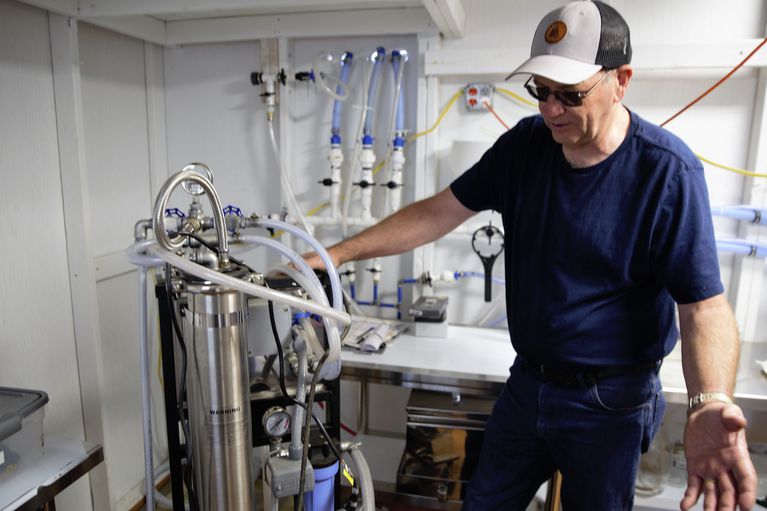Major Breakthrough in MAPLE SYRUP research
Study Shows Pure Maple Syrup Better than Refined Sugars for Cardiometabolic Health
This is a re-post from CISION PR Newswire By Québec Maple Syrup Producers
BOSTON, Mass., July 24, 2023 /PRNewswire/ – New clinical research supports the potential health benefits of maple syrup. Substituting two tablespoons of maple syrup for refined sugars helps reduce cardiometabolic risk factors.
The research was presented today in Boston at NUTRITION 2023, the annual conference of the American Society for Nutrition (ASN) under the title “Substituting refined sugars with maple syrup decreases key cardiometabolic risk factors in individuals with mild metabolic alterations, a randomized, double-blind, controlled crossover trial.” It was conducted by a Laval University team led by Dr. André Marette, PhD, at the Quebec Heart and Lung Institute and Dr. Marie-Claude Vohl, PhD, at the Institute of Nutrition and Functional Foods. The study examined the effect of substituting 5% of the total daily energy provided by added sugars, with an equivalent quantity of maple syrup, on the composition of subjects’ intestinal microbiota, and its impact on recognized risk factors for cardiometabolic disease.
Dr. Marette noted: “Up until now, there had been no randomized controlled trial on the impact of replacing refined sugars with maple syrup on intestinal microbiota and cardiometabolic risk factors in humans. Our results suggest that the consumption of maple syrup as a natural sweetening agent is less detrimental to cardiometabolic health than that of refined sugars and can be associated with selective changes in gut microbiota.”
Reductions in Abdominal Fat, Blood Pressure, and Improved Glycemic Response
Forty-two volunteers in good health but slightly overweight were recruited to participate in this study, which consisted of two, eight-week phases. During each of the phases, subjects were asked to consume either two tablespoons of maple syrup or the same amount of a flavored sucrose syrup each day. After a four-week break, the roles were reversed: the subjects who had consumed maple syrup consumed the sucrose syrup and vice versa. This study was a randomized, double-blind, controlled, cross-over design to reduce confounding factors and increase study precision. Cross-over design ensures that the same test subject is his or her own control, consuming both placebo and maple syrup.
Study participants who consumed pure maple syrup had a better response to an oral glucose tolerance test than those who received a flavored syrup of refined sugar. This means that, after eating, their bodies better managed their blood sugar levels. The study found that subjects who consumed maple syrup tested lower systolic blood pressure than those who consumed refined sugar. Lowering blood pressure contributes directly to lesser risk of cardiovascular diseases.
According to one participant: “Before the study, I would consume pure maple products regularly but not consistently. I have always enjoyed it. Today I consume at least 3-4 tablespoons daily (around 1/4 cup) and I replace refined sugar whenever I can with pure maple syrup.”
Finally, this study revealed that compared to what is observed in the same subjects who consumed a placebo (sucrose solution), there is a significant reduction in the accumulation of android fat when the subjects consumed maple syrup. All these factors reduce the risk of diabetes and cardiovascular disease.
Study Extends Earlier American Research into Maple Syrup Extract
Indeed, Dr. Marette’s recent clinical study extends earlier findings on a phenolic-enriched maple syrup extract (MSX) by American scientist Navindra P. Seeram, PhD, of the University of Rhode Island, College of Pharmacy. Dr. Seeram showed that MSX has promising anti-inflammatory effects in several diseases, including diabetes and Alzheimer’s. The difference between maple syrup and sucrose solution is the natural presence of 1% of bioactive compounds in maple syrup, known as phenolic-enriched maple-syrup extract —MSX— studied by Dr. Seeram’s team since 2009. “We are learning that natural products from medicinal plants and functional foods like maple syrup might be viable alternatives to synthetic pharmaceuticals due to their diverse range of biological effects and safety profiles”, noted Dr. Seeram.
Quebec Maple Syrup Producers (QMSP) President Luc Goulet is pleased with the study’s results confirming maple syrup’s health benefits: “This research builds on years of ongoing research on the properties of maple syrup, made solely from the sap of maple trees harvested by our hard-working producers.” QMSP represents over 13,000 maple producers and 8,000 maple enterprises. Quebec produces 72% of the world’s maple syrup, exporting it to over 70 countries.
Maple Is a Better Sweetener
Professor Marette has long studied the inclusion of natural sugars like honey and maple syrup in our diets. “Natural sugar clearly brings benefits, or at least fewer problems than refined sugars,” he said.
Maple syrup is a popular kitchen staple, but it is also complex — much more than just a sweetener. 100% pure maple syrup contains over 100 compounds such as vitamins and minerals, amino acids, phytohormones, and 67 phenolic compounds including many polyphenols. That’s what makes maple syrup a healthier choice than white sugar or other refined sweeteners. The vitamins and minerals found in maple syrup help maintain and support a healthy body and bodily function. Maple syrup is an excellent source of manganese, which is involved in many chemical processes in the body, including processing of cholesterol, carbohydrates and protein. It might also be involved in bone formation.
General nutrition claims for 2 tablespoons of maple syrup:
- Excellent source of manganese (35%).
- Good source of riboflavin (15%).
- Source of calcium (2%), thiamin (2%), potassium (2%) and copper (8%).
- Contains 15% fewer calories than in honey.
- Contains 12% fewer calories than in light corn syrup.
The study was jointly funded by Québec Maple Syrup Producers and the Ministère de l’Agriculture, des Pêcheries et de l’Alimentation du Québec (MAPAQ) through its healthy food production initiative, the Programme Alimentation santé.
To find out more about the clinical study, please visit our website at ppaq.ca/en/medias/clinical-study.



